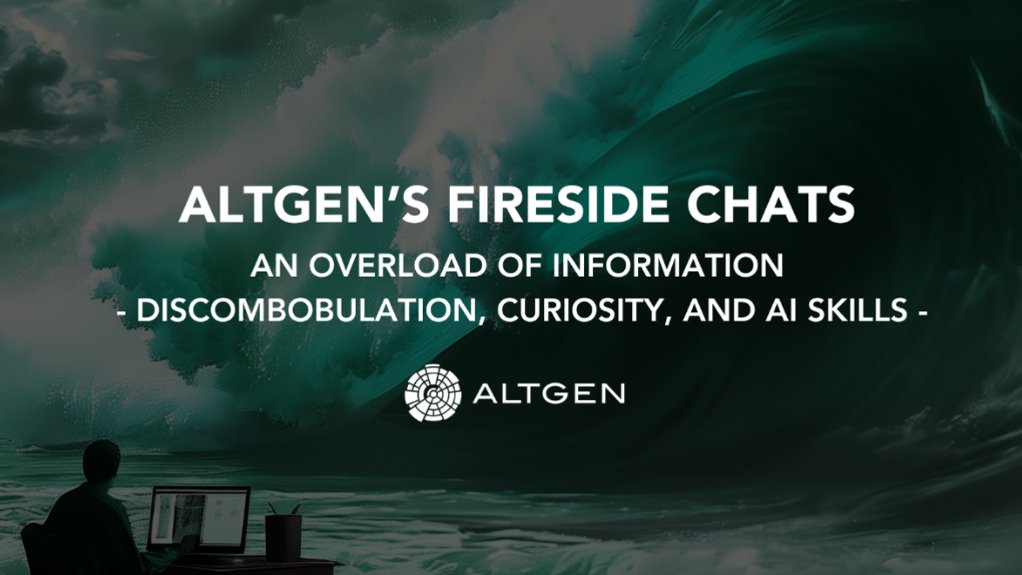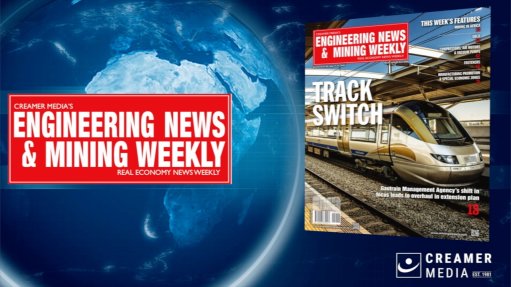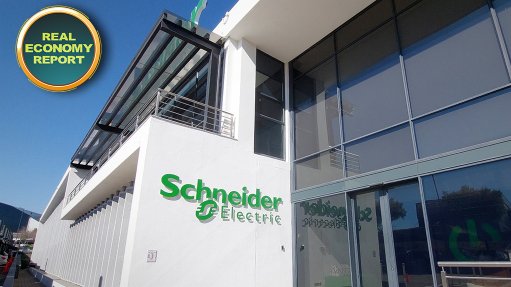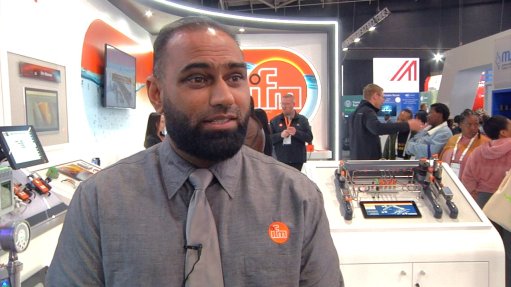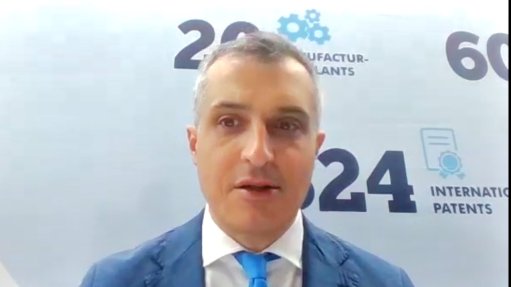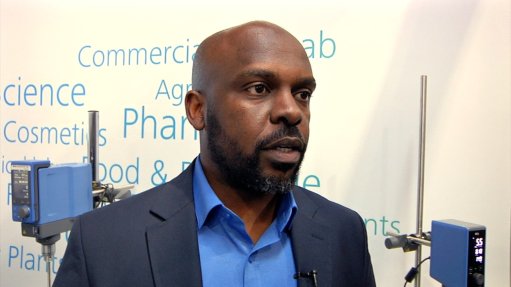AltGen’s Fireside Chats: An overload of information - Discombobulation, Curiosity, and AI skills
This article has been supplied.
This is the fourth and final piece in the green hydrogen segment of this series where we attempt to tie each element of our past discussions together. It is also the beginning of a new conversation about how data and AI software, whilst incredibly important, should not replace critical thinking, nor be prioritised above intellectual curiosity. Across the globe, organisations are increasingly relying on data-driven decision-making and numerous tools are being used to aid in these processes. In the energy industry, data is highly valuable, however, arguably should not be used in isolation.
We have squawked, grumbled, growled, and chewed on the themes of collaboration and partnership, communication and understanding, and upskilling and upscaling. Today, we are hoping to tie it all together with some creative thinking and fresh conversations.
AltGen’s (New) Burning Questions
- Is it possible to replace traditional competitive advantage with collaborative advantage?
- Is it possible to redefine what the word ‘team’ means in the energy industry?
- How can changing the way that we look at these concepts, change the future of the green energy transition for the better?
Our panellists include Peter Oldacre, CCO at Protium and vintage car enthusiast, Maxime Lepinoy, Technical Director for Africa at Fortescue, and Teal Emery, Founder of Teal Insights, Consultant at AidData, Adjunct lecturer in International Economics & Finance at Johns Hopkins University, and Fellow at the Energy for Growth Hub.
Top challenges shortlisted by our Panellists
We will be using the fourth challenge…an overload of information as our launch pad for this discussion. This Fireside Chat is the final piece of the puzzle (at least for now) in our series on the feasibility of green hydrogen projects in Africa.
1. Communication
2. Policy and Legislation
3. Finding Skills at Scale
4. Overload of Information
Overload of Information: ‘Discombobulation and Confusion’
In an age of information where virtually everyone has access to everything and can, at any time, share their opinion accordingly, there is a lot of noise out there. Although this unquestionably has its benefits, too much information can cause a considerable amount of confusion and chaos, which in turn, can make decision-making processes overly complicated.
“I think when we look at the energy industry, there is just so much hype and noise that sometimes we just need something to ground our decisions in.”
Teal Emery, Founder – Teal Insights
With new information about green hydrogen technology becoming available every day, making any decision can prove difficult. Questions like “Should we invest in this electrolyser now or wait for a more advanced one to become available in the market?” do not have definitive answers. This is one seemingly simple question amongst countless others that one imagines popping up around the green hydrogen dinner table.
How do we decide which questions need to be answered now, whether we’re asking the right questions, and where possible answers may lie? How do we use the data that we have amassed to make better decisions now?
Possible Solutions as outlined by our Panellists:
1. Using AI software across the integration frontier…
As we mentioned in our last Fireside Chat (In case you missed it; Finding skills at scale), AI software is already being used in the renewable energy industry to optimise both designs and processes. Machine learning, a subfield of AI, involves training algorithms to learn from data without explicitly being programmed. This type of AI can analyse inputted information, identify patterns, and make predictions based on historical data.
“Machine learning AI can be used to predict consumption patterns, to build demand-responsive management in real-time, it can be used to automate, to balance, to understand. Ultimately, this type of AI can be used as a technology management tool across the integration frontier.”
Peter Oldacre, CEO - Protium
As an adjunct lecturer of Finance and Economics at Johns Hopkins, Teal uses several AI programming tools to teach his students how to interpret vast amounts of ‘dirty data’ to create actionable insights. He highlights an incredibly important point about what AI and other data analysis software are arguably meant to be used for.
“I'm not trying to test their ability to learn and understand the details of the programming language. I want them to use this as a tool to understand the world.”
Teal Emery, Founder – Teal Insights
AI can be used as a powerful tool, but it is just that, a tool. Generated data is only useful if there is a persona at the end of the process that can both accurately understand the data and use that data to make decisions that have a long-term, positive effect.
2. Leading with purpose
“High-quality data doesn’t naturally result in high-quality decision-making. You need a leader with purpose and the ability to comprehend the data. That’s where effective decisions get made.”
Peter Oldacre, CCO - Protium
Leaders need to understand the limitations of AI technology, never relying entirely on software to replace their decision-making ability. When they do, mistakes are made, skills regress, and at times, safety is placed at risk. Although AI is considerably advanced, it does not at this point, hold the same intrinsic value as creative human thought. The value in using these kinds of tools can be found in eliminating the lower-order, repetitive tasks that would take someone hours or days to complete.
“The human ability to add value across domains, a lot of time lies in this ability to synthesise information across ideas that don't always fit together easily. And I think that that's particularly true in clean energy where there is a lot of innovation. It is that sort of higher-level integration that I think humans are better able to do and if you can get the smaller things off your plate, it gives you more time to innovate and I think that's a good thing.”
Teal Emery, Founder – Teal Insights
Creating space and time for this type of thinking arguably requires a new type of team dynamic, and naturally then, a new model of leadership, one that encourages collaboration rather than hierarchy.
What I enjoy working with is a mindset where we push each other, I want people to push me on my commitments, and what that allows for is a common understanding that I will push you.
Peter Oldacre, CEO - Protium
Changing both knowledge and leadership models is not impossible, but it requires a re-evaluation of and shift in how the industry perceives advantage. Perhaps the way forward lies not in competitive advantage, but rather collaborative advantage.
3. Let go of ego and work collaboratively
“A lot of people in the industry are trying to develop their own integration technology which is creating more risk. They are playing the human game of saying that they’ll do it better than everyone else. Every single CEO is trying to position themselves as the saviour of the species, why not get involved in partnership processes instead?”
Peter Oldacre, CCO - Protium
This shift is already starting to take place in the project environment, particularly with large-scale projects where new information is coming to light daily.
“As in every race we want to be first when it comes to nascent market competition. With Hydrogen, long term viability will be reached when large scale RE projects economics will meet H2 technology maturity. Strategic partnerships alongside the value chain will be a key success factor.”
Maxime Lepinoy, Technical Director for Africa - Fortescue
4. Encouragement for the youth
“AI is both something that is challenging for younger people that are trying to enter the job market, and something that if you learn to use correctly, is like a superpower because it allows you to learn new things quickly.”
Teal Emery, Founder – Teal Insights
Although the future of AI is uncertain and often characterised by the fear of a losing a job opportunity, there will always be a need for people. Innovation and progress are achieved through learning quickly and building up a knowledge base that gives people space to add real value – value that is intrinsic to humanity and lies in creative conception and critical thinking. How we use these new tools is what is important.
AI technology and other software will come and go. It'll be something else in 10 years. If you are intellectually curious, when something new comes up, you will explore it. Do you have the toolkits that will allow you to explore things beyond yourself at scale and quickly? I think data science and data science tools can allow you to do that.
Teal Emery, Founder – Teal Insights
An industry-wide environment where people are encouraged to analyse and challenge the data, to explore solutions beyond traditional knowledge models will require skills that are willing to struggle. It also requires employers that are willing to adapt their hiring strategies to include skills that fit outside of traditional job description parameters.
“It comes down to building a team of people that come from different horizons but are curious enough to look outside of the box, today the average job description is not designed with a line: “be curious and take one day of the week to look at something else, to understand something else which may support your business.”
Maxime Lepinoy, Technical Director for Africa - Fortescue
Final thoughts…
Challenging traditional ways of thinking and acting is often a teeth-grinding, sweaty-palmed, brain-boggling kind of process, but it is what humans do best. The energy industry is particularly good at creating space for innovation. As individuals and as a collective, we must continue to evolve alongside AI whilst keeping in mind the danger that allowing it to operate in isolation holds.
AI is there to help us leapfrog concepts, ideas and mundane tasks that do not require hours of contemplation, but true innovation and creativity still requires people to understand nuances tech will not necessarily have the answer to, or may just pull up aggregated answers to (think open source). AI enables us to strategize more broadly but should really be used as an enabling tool.
No one can say with absolute certainty whether the green hydrogen projects being developed across the globe will be successful or not. Answering this question was never the main objective. Rather, we hope that these Fireside Chats on green hydrogen have offered up knowledge that may not have been considered before, nuggets of information that might encourage a unique way of developing solutions.
Comments
Press Office
Announcements
What's On
Subscribe to improve your user experience...
Option 1 (equivalent of R125 a month):
Receive a weekly copy of Creamer Media's Engineering News & Mining Weekly magazine
(print copy for those in South Africa and e-magazine for those outside of South Africa)
Receive daily email newsletters
Access to full search results
Access archive of magazine back copies
Access to Projects in Progress
Access to ONE Research Report of your choice in PDF format
Option 2 (equivalent of R375 a month):
All benefits from Option 1
PLUS
Access to Creamer Media's Research Channel Africa for ALL Research Reports, in PDF format, on various industrial and mining sectors
including Electricity; Water; Energy Transition; Hydrogen; Roads, Rail and Ports; Coal; Gold; Platinum; Battery Metals; etc.
Already a subscriber?
Forgotten your password?
Receive weekly copy of Creamer Media's Engineering News & Mining Weekly magazine (print copy for those in South Africa and e-magazine for those outside of South Africa)
➕
Recieve daily email newsletters
➕
Access to full search results
➕
Access archive of magazine back copies
➕
Access to Projects in Progress
➕
Access to ONE Research Report of your choice in PDF format
RESEARCH CHANNEL AFRICA
R4500 (equivalent of R375 a month)
SUBSCRIBEAll benefits from Option 1
➕
Access to Creamer Media's Research Channel Africa for ALL Research Reports on various industrial and mining sectors, in PDF format, including on:
Electricity
➕
Water
➕
Energy Transition
➕
Hydrogen
➕
Roads, Rail and Ports
➕
Coal
➕
Gold
➕
Platinum
➕
Battery Metals
➕
etc.
Receive all benefits from Option 1 or Option 2 delivered to numerous people at your company
➕
Multiple User names and Passwords for simultaneous log-ins
➕
Intranet integration access to all in your organisation



